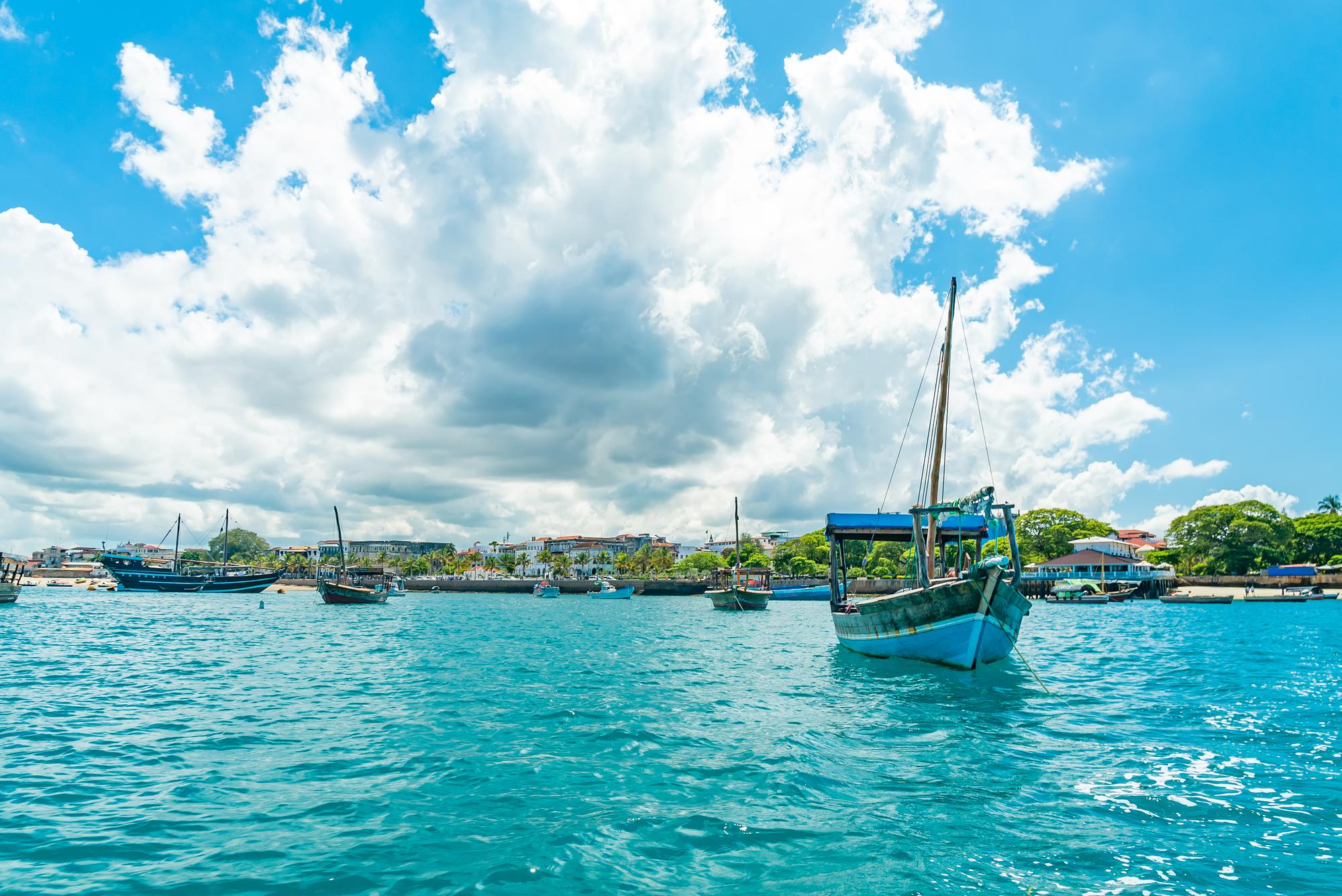Lagos Carnival may have been cancelled this year, but the Nigerian descendants of Brazilians in Lagos Island were still dancing in the street to the traditional samba beats of their ancestors.
Last May the Guardian UK reported that Lagos Carnival had lost touch with its Brazilian roots. Truly, the Carnival as it stands today is a typical manifestation of money in the hands of the wrong people. It is mass produced costumes and sound systems blaring overly familiar Naija pop music while dance troupes perform carefully choreographed acrobatics routines. To a spectator who has experienced Carnival in Rio de Janeiro and even London’s infamous Notting Hill Carnival, Lagos Carnival is disappointing, and couldn’t be further from the essence of Carnival arts. What the reporter did not know, however, was that after fighting tooth and nail to be included in the event, Nigeria’s first ever Brazilian style Samba School, Èkó Samba Community, participated in Lagos Carnival 2015. They were the only live drumming group at the event and they unintentionally upstaged every other performance group there.
Èkó Samba Community is a non-profit group based in Satellite Town, Lagos, which aims to engage and empower children and young people through creative arts, namely Brazilian Samba drumming. Despite wearing only simple white trousers, traditional Yoruba caps and bright aqua-blue t-shirts with “Bateria” proudly emblazoned across their backs, the young people of Èkó Samba Community stole the show with their vibrant Samba Batucada beats and hypnotic Samba Reggae rhythms.

This year something even more spectacular took place. Thanks in part to Ms Mark’s article, the founder and Musical Director of Èkó Samba Community, Seyi Ajeigbe, has forged a relationship with the Nigerian Descendants of Brazilians union group based in the Brazilian Quarters of Lagos Island, also known as ‘Popo Aguda.’ This was where the formerly Nigerian returnee slaves from Brazil came back to, in Lagos, once they were freed.
On 28th March 2016, Easter Monday, history was made in Nigeria as Èkó Samba Community brought Samba home to Popo Aguda for the first time. Seventeen children and young people aged between 8 – 21 years, held their drums anxiously, waiting for a signal to start playing. They were stood outside the Pavilion – a local establishment erected in 1998 to commemorate 100 years since the abolition of slavery in Brazil. The Onipopo (cultural leader) of Popo Aguda, Dr MacGregor, explained that this establishment is their “cultural signpost,” the meeting place for community events and the starting point of each Fanti Carnival year on year.
Fanti carnival is the legacy of the Afro-Brazilian Nigerian descendants in Lagos. It was started over 100 years ago and up until this year, it has taken place annually in December and around Easter time, organised by the Brazilian Campos Carretta Carnival Association. An insightful chat with Mr DaSilva, first Vice President of the Association, informed me that this year, sadly, the State Government did not to allow access to funds for either Fanti Carnival or its commercialised child, Lagos Carnival, forcing a break in more than a century long tradition. Every other carnival in Lagos and Nigeria, including the now infamous Calabar Carnival, was born out of this event, steeped in Brazilian traditions brought back and held onto by the Afro-Brazilian descendants. Back then, however, Fanti Carnival was a beautiful display of hand-sewn costumes, traditional dancing and live brass bands with the different regions of the Brazilian district competing for prestige in various categories including best performance, costume and crown. Members of the community I spoke with became wistful and animated as they recounted their grandfathers and fathers sewing costumes or constructing magnificent crowns from their carnival base or “Fanti house” such as the Damazio home on Igbosere street.

Despite there being no Carnival this year for them to enjoy, families still gathered beneath canopies outside their family homes, sharing a meal as they do every year with children and grandchildren travelling back from foreign countries far and wide to all be together. The Onipopo shared his disappointment, “all the indigenes of this place, the ones of the Diaspora, the ones from London and so on, always come here … now they have come here and there is nothing for them to see.”
I met four members of the Vera Cruz family sitting on the doorstep of their Portuguese style house, sharing pepper soup and watching the commotion unfold in front of them as the Bateria prepared to perform. The only son discussed with his two sisters and mother how their great grandfather, a goldsmith, was the first of their family lineage to return to Lagos in the 1800s. They spoke of how they watch Brazilian Carnival each year on television and one of the sisters wanted to know where her child could learn to dance Samba the way they have seen, “I like that Samba dance” she said. Mr Vera Cruz spoke of the enduring family connection to Brazil, including visits to Bahia to see family who are still based there and a ‘Labo’ masquerade that was brought from Bahia and is now displayed in the Vera Cruz household.

If you closed your eyes you would be forgiven for thinking you were in Brazil. Samba drums proudly and rhythmically calling people up from their seats and out of their homes to move their feet any way they can. But the incessant beeping of horns and bus conductors hollering out the route destination to potential passengers, served as an abrupt reminder that we were in fact in the hustle and bustle of Lagos, Nigeria.
Perhaps the most excited member of Èkó Samba Community was the Musical Director himself, Ajeigbe, who had only dreamed of a moment like this when he decided to bring Samba “back to Africa” in 2011. Having played Brazilian music for more than 10 years the Nigerian/British musician is now giving his local community something he longed for as a child – a place that would enable him to escape his daily struggles, as his mother worked hard to raise him and his four siblings, in a sprawling African ghetto by herself. A space in which he could bring to life the music from his imagination. A place where he could simply, play a drum and get lost in the music. Since discovering Samba in London in 2004, Ajeigbe imagined returning it to the continent where the very roots of this music had originated.
Before the drumming could commence, Ajeigbe poured libation on the doorstep of the Pavilion, paying respect to the forefathers and mothers of the returnee Afro-Brazilian descendants, honouring those who had embarked on that journey all those years ago, leaving their African Motherland for the complete unknown. “It is the most significant thing that we have ever done since the existence of Èkó Samba Community,” he said. “It is very important to connect the Afro-Brazilian music that we are trying to lend, with the Afro-Brazilian people living in the very place that we are trying to develop this culture. I am honoured to bring the culture of these people’s ancestors to them.” He compared the Nigerian descendants here in Lagos to the Afro-Brazilians in Brazil, “they need to hold onto their identity, because if they let it go it will disappear,” drawing on a Yoruba saying, “odo ti o’ba gbagbe orisun e, gbigbe ni a’gbe,” which translates as “the river that forgets its source, will dry up.”
And thus Ajeigbe called in the Bateria with a blow of his whistle and the tap of his charuto drum, beckoning people both present and past, to bare witness with their laughter and dance.

Even within Brazil, people disagree about the origins of Samba. To date, the oldest form of Samba that is still currently practiced is Samba de Roda, also known as Samba Chula, which is indigenous to Cachoeira. This region in Bahia was the primary port where slave ships docked, bringing human cargo by their thousands from West Africa, for example from the Portuguese Barracão in Badagry, Lagos, which acted as a half-way house for those destined for uncertain futures across the Atlantic Ocean. The slaves were transported from Cachoeira to Salvador Mercado Modelo, which was the largest slave depot in the Americas.
One thing that Brazilians will all agree on about the birth of Samba is that it came from the terreiros – temples in which African deities are worshipped through the practices of Candomblé, Umbanda, and Macumba. Rootsy rhythms were born out of the spiritual songs and beats within the terreiros and were later translated so that they could be palatable and transferable to a secular audience. And thus, modern day Samba was born and as it travelled across the vast Brazilian land took on different shapes and sounds and blended with various folk music to create today’s diverse array of Sambas from Samba Reggae in Salvador to Maractu in Pernambuco.
Mr Bayo Damazio, whose grandfather was one of the original forefathers who brought Fanti Carnival to Lagos, clearly enjoyed his first experience of live Samba in Lagos. As the drummers literally stopped traffic in the street and caused quite a jam in the narrow crossroads of Popo Aguda, Damazio didn’t even seem to notice as he whistled and danced as though he had been listening to Samba all his life. He told me afterwards that he found the group “quite impressive” and insisted they perform at his daughter’s upcoming wedding. Damazio had earlier admitted that, “honestly speaking the connection is just not there…” at present, between contemporary Brazil and the Nigerian descendants. It is not for lack of determination though, as he said earnestly, “but we are trying to re-connect.”

“We are Brazilians,” proclaimed Onipopo boldly, who although is not a descendant himself, was born and raised in the Brazilian Quarters. The connection today may not be as close as it could be, but there is no denying that deep in the spirit of the Afro Brazilian descendants lies a permanent and prevailing link to their roots. More than just their Brazilian surnames, the people of this community resemble closely their Brazilian counterparts from their strong family unity and love for music and festivities to name a few. Deeper than that, though, it is clear that their very identities are intrinsically entangled with their ancestral past. Onipopo alluded to the “cross-fertilisation of culture” that has occurred between Africa and Brazil, “they brought the Carnival [to Lagos]” he said, “whilst over there in Brazil, Africans left their legacy in the form of the Orixas,” or African Deities, that are today worshipped more openly and widely outside of countries like Nigeria where they originate from.

As Onipopo shared his insightful knowledge on the Brazilian connection here in Lagos with me, we were offered hot akara (fried bean cake), a traditional Yoruba food that you will find in Salvador, Bahia, today where it is known as ‘acaraje.’ The Afro-Brazilian adaptation of this tasty delicacy is larger and usually crammed full of extras like prawns, okra and salad, and widely available at festivals and Carnivals as a street snack. It was quite poignant to see it being shared amongst the members at the Popo’s Pavilion on this eventful day.
It may not have been the spiritual experience I was anticipating, but it was the most spirited and soulful performance that Èkó Samba Community has ever given. Their drums carried so much more than just sound, bringing with them the energy and spirit of ancestors past. Tobi Ijadola has been playing Samba with the group for a year and a half and reflected on the experience on the bus back home to Satellite Town: “I am happy and privileged to be part of the team that is playing this samba in the Brazilian Quarters for the first time, brining it to the owners for the first time in Africa. I can say that today’s performance is one of the most special ones and it’s one of the most important ones we have ever done and one of the best performance I’ve been included in ever since I joined the community band. I feel very happy that finally people are beginning to recognise samba in Africa…we are trying to bring it back and I’m happy to be part of that team. I think that today’s performance was well accepted by the people of this community. We were able to bring back the spirits of the slaves that went and came back.”
It was also a highlight performance for Emmanuel Offe, who has been drumming with Èkó Samba Community since it was established in 2011 and has played throughout Lagos, and at Calabar Carnival in 2014. Offe added that, “I really enjoyed myself today…we just did a great thing in bringing back our history to our country. I never had this kind of experience playing to our ancestors but I loved it so much.”

For those of us who were there, the auspiciousness of the day was undeniable. The energetic and captivating Samba sounds were enough to shake awake the spirits and ghosts of Brazilian forefathers and mothers, and ignite fire within those who work so hard to preserve their Brazilian roots. This was a poetic example of the positive legacy that has been born out of the epistemic violence that was slavery. Yes, positives exist, and the exchange, assimilation, preservation and dispersal of culture, be it here in Africa, in Brazil or beyond, as a direct result of the slavery era, is just one manifestation of this. Onipopo told the members of Èkó Samba Community after their performance was over, “you have arrived at Popo Aguda. It is not easy for Onipopo to recommend people but you can see what you have achieved…I hope you will be coming here more often.” Let’s hope that with the arrival of those drum beats comes a stronger connection between two kindred lands and their people.
You can find our more about the Èkó Samba Community on their website: www.ekosamba.org or on Facebook: Eko Samba Community.
Photo Credit: Emma Nathan






